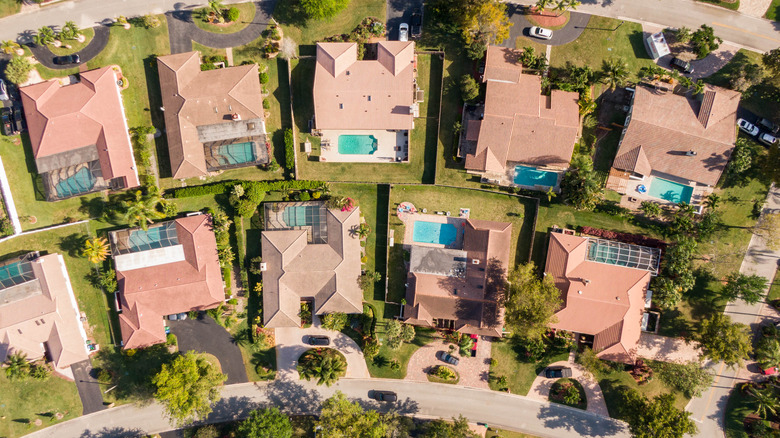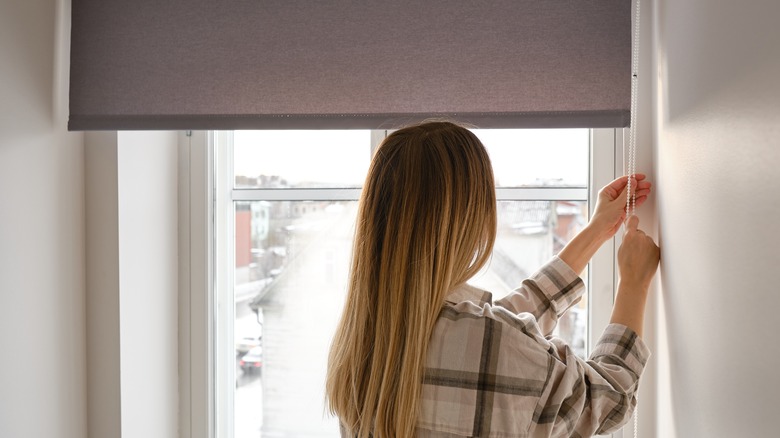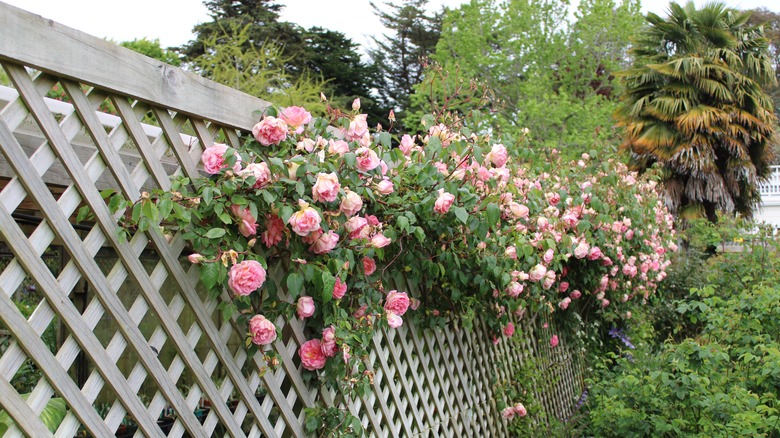What To Do If Your Home Is Right Next To Your Neighbor's House
These days it's fairly common to live in neighborhoods where houses are squeezed right next to one another, like student photos in your high school's yearbook. While these types of neighborhoods can still be charming places to live, being up close and personal with your neighbor's property has some distinct disadvantages. For one, it can make homeowners feel like they lack privacy in their yard or even in their home. Also, if your neighbor's yard is a disaster area that's not befitting for your beautiful neighborhood, their proximity can definitely lower your home value when it's time to sell (per Trulia).
Thankfully, having a home that's very close to your neighbor's home doesn't have to mean a lack of privacy or constant neighborly distractions. In fact, if you live close to your neighbor's property, the best thing you can do is get to know your neighbor. According to Realtor.com, not only will this help ease any tensions over future disputes or requests, but building mutual respect with your neighbor can go a long way. If there's ever an emergency or break-in on your property, your neighbor may be the first person to know. Thus, you'll want to have a relationship with them so that they can alert you or the authorities whenever it appears that something's amiss at your home.
Increasing privacy in your home
Let's face it, sometimes we meet our neighbors and decide that the less we see of each other, the happier we'll be. Unfortunately, this is a tall task when your home is mere feet away from your neighbor's. Thankfully, there are a variety of ways that homeowners can optimize their home's privacy without breaking the bank. While investing in blinds or shades is a given in order to avoid a nosy neighbor's persistent gaze, nobody likes limiting their home's natural sunlight if they don't have to. However, according to Amazing Architecture, indoor room dividers can serve as a nice alternative so that you can maintain your privacy while letting the afternoon sun settle in your home.
In fact, there are other effective ways to obscure your neighbor's view through your windows. For instance, investing in lightly tinted windows can ensure that the inside of your home remains largely obscured while the outside world is easy to see. You can also hang some house plants from windows in areas of your home where you tend to spend a lot of time. This can both make the inside of your home harder for your neighbor to see while improving your home's air quality.
Increasing privacy on your property
Even if your yard's size is modest and your neighbor's home looms close by, there are still ways to maximize your privacy in your yard. Naturally, building a fence is one of the most effective ways to maintain your yard's privacy, but you'll want to build it at least six feet tall for optimal results (per Trulia). Of course, tall hedges can serve the same purpose as a robust privacy fence while serving to beautify your yard in the process. However, planting and maintaining perfect hedges takes time, as well as quite a bit of upkeep.
Of course, having a small yard often means less privacy, but it also leads to fewer options when it comes to planning out your garden. For this reason, many homeowners who live very close to their neighbor's house choose to employ a garden trellis both for added privacy and to increase their yard's garden space. According to Early Experts, clematis and trumpet vine are both effective plants to fill out your trellis and beautifully hide portions of your yard from view.


